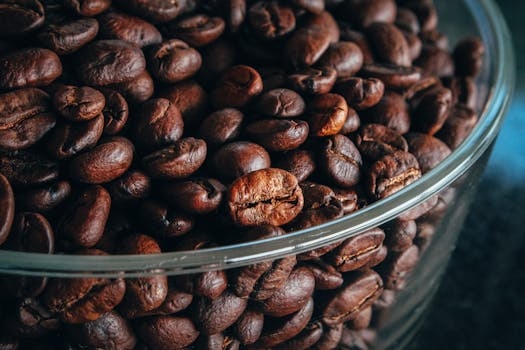Honduras Food Guide
Content Information
Recently updated🔥Current Food Trends 2025
What's happening in Honduras's culinary scene right now
Honduras' 2025 culinary scene celebrates diversity from Caribbean coast to mountainous interior. Baleadas remain national street food icon - flour tortillas with refried beans, cheese, crema, found everywhere from Tegucigalpa to San Pedro Sula. Garifuna coastal cuisine gaining recognition - machuca (mashed plantains with coconut seafood soup) showcases Afro-Caribbean heritage along La Ceiba and Trujillo coasts. Sopa de caracol (conch soup) famous throughout Latin America after Banda Blanca's catchy song. Uses more coconut than any other Central American cuisine in both sweet and savory dishes. Caribbean coast (La Ceiba, Roatan) emphasizes fresh seafood with coconut milk and plantains. Baleadas King, Baleadas Express, and Estelinas popular chains. Comedor Blanquita in Mercado Los Dolores (Tegucigalpa) serves authentic local baleadas. Baleadas Kike in San Pedro Sula famous for biggest baleadas in Honduras. La Cumbre restaurant (Tegucigalpa) offers panoramic city views with steaks, seafood, wine. Lake Yojoa between San Pedro Sula and Tegucigalpa abundant with fish stands. Coastal towns like Tela feature Cesar Mariscos for seafood. Garifuna communities (Tornabe, Triunfo de la Cruz) maintain proud fishing culture. Pollo Chuco (San Pedro Sula specialty) celebrated with annual chicken fest since 2020. Coffee culture thriving - De la Montaña Café, 80eneros café, Café Con Libros. Pan de coco (coconut bread) symbolizes Garifuna influence. Roatan offers mix of Honduran and Garifuna cuisine including Tapado Soup.
Food Safety Tips
Essential food safety information to help you enjoy Honduras's cuisine safely and confidently.
Drink bottled or purified water.
Tap water in Honduras is generally not safe to drink. Stick to bottled or purified water to avoid waterborne illnesses.
Be cautious of street food.
While street food can be a delicious and affordable option, choose vendors that appear clean and hygienic. Ensure food is cooked thoroughly and served hot.
Wash fruits and vegetables thoroughly.
Wash all fresh produce with purified water before consumption to remove any potential contaminants.
Dietary Options
vegetarian
MEDIUM AVAILABILITYVegetarian options are becoming increasingly available in larger cities and tourist areas, but traditional Honduran cuisine is heavily meat-based. Beans, rice, and plantains are readily available and form the base of many vegetarian-friendly dishes.
vegan
LOW AVAILABILITYVegan options can be limited, as dairy and eggs are frequently used in Honduran cooking. Careful communication with restaurant staff is essential to ensure vegan-friendly preparation.
Common Allergens
Seafood
MEDIUM PREVALENCESeafood is a common ingredient in coastal regions, and cross-contamination can occur. Individuals with seafood allergies should exercise caution.
COMMONLY FOUND IN:
Dairy
MEDIUM PREVALENCEDairy products like cheese and milk are used in many traditional dishes. Individuals with dairy allergies should inquire about ingredients.
COMMONLY FOUND IN:
Coconut
HIGH PREVALENCECoconut is extensively used in coastal Honduran cuisine, especially in Caribbean-influenced dishes. Honduras uses more coconut than any other Central American country in both sweet and savory preparations.
COMMONLY FOUND IN:
Essential Food Experiences
These iconic dishes represent the must-have culinary experiences that define Honduras's food culture for travelers.

Baleadas
A quintessential Honduran dish consisting of a thick flour tortilla filled with refried beans, crumbled cheese (queso fresco), and crema. The basic baleada is simple but variations may include avocado, scrambled eggs, chorizo, or meat. This is Honduras' iconic street food and is served throughout the country at breakfast, lunch, or dinner. Baleadas are generally eaten for breakfast with coffee or for dinner, with stands typically closed during lunchtime. Baleadas Kike in San Pedro Sula serves the biggest baleadas in Honduras.

Sopa de Caracol (Conch Soup)
A rich and flavorful soup made with conch, coconut milk, yuca (cassava), and various spices. It's a popular dish along the Caribbean coast. The conch is cooked in coconut milk and the conch's broth, with spices, yuca, cilantro, and green bananas (guineo verde). This soup originated on the country's north coast where Caribbean flavors dominate, reflecting the culture of the Garifuna people who have mixed African and indigenous Caribbean ancestry. Made famous throughout Latin America by Banda Blanca's catchy song 'Sopa de Caracol'. Rich and creamy, it's a comforting bowl distinctly Honduran.

Plato Típico (Typical Plate)
A hearty combination of grilled meat (usually beef or chicken), fried plantains (tajadas), refried beans, rice, sour cream, avocado, and tortillas. It's a staple of Honduran cuisine. This mixed platter translates as 'typical dish' and variations are found in any eatery in the country. The most traditional Honduran almuerzo and cena revolves around grilled meat of your choice - chicken, pork, or beef - alongside refried beans, white cheese, tajadas, rice, some avocado, and tortillas.

Machuca
A traditional Garifuna dish that captures the heart and soul of coastal cuisine in Honduras. Machuca combines mashed green and ripe plantains with a savory coconut-based seafood soup. The broth, flavored with garlic, onions, and peppers, pairs beautifully with the starchy plantains, creating a dish that's both comforting and uniquely tropical. The origins are deeply rooted in Garifuna culture along the Caribbean coasts. The dish reflects their resourceful approach to cooking, using ingredients readily available from the land and sea. A celebration of the Garifuna community's culinary heritage.

Catrachas
Named after the Honduran nickname 'Catracho', this dish features a fried corn tortilla layered with beans, cheese, sour cream, and often topped with a fried egg. Similar in some aspects to the baleada, Catrachas distinguishes itself with its fried tortilla and often heartier additions. A popular comfort food throughout Honduras.

Tapado Olanchano (Olancho Stew)
A slow-cooked stew originating from the Olancho region, typically made with beef, smoked pork ribs, and various root vegetables like yuca and plantains. This hearty dish reflects Olancho's inland location and strong agricultural traditions with emphasis on locally sourced ingredients. The stew showcases the region's cattle ranching heritage.

Pan de Coco (Coconut Bread)
Soft, slightly sweet bread infused with the flavor of fresh coconut, beloved in coastal regions. It's often paired with savory dishes like stews or enjoyed on its own as a snack. This bread is a symbol of the Garifuna community's influence on Honduran cuisine, showcasing their use of coconut in baking traditions.

Pastelitos de Carne (Meat Pastries)
Small, savory pastries filled with seasoned ground beef, often enjoyed as a snack or appetizer. These fried turnovers are popular street food throughout Honduras, with crispy golden exterior and flavorful meat filling.

Pollo Chuco
A San Pedro Sula specialty featuring fried chicken with unique local preparation. This dish has become so popular that San Pedro Sula celebrates it with an annual chicken fest (starting from 2020). A local favorite that showcases San Pedro Sula's distinctive culinary identity.

Tapado (Seafood Stew)
A rich coconut-milk based seafood stew popular in Roatan and coastal areas. Combines fish, shrimp, conch, and other seafood with plantains, yuca, and coconut milk. This Garifuna specialty showcases the abundance of Caribbean seafood and is a must-try in coastal Honduras.
Regional Specialties & Local Favorites
Discover the authentic regional dishes and local favorites that showcase Honduras's diverse culinary traditions.

Tapado Olanchano (Olancho Stew)
A slow-cooked stew originating from the Olancho region, typically made with beef, smoked pork ribs, and various root vegetables like yuca and plantains.

Pastelitos de Carne (Meat Pastries)
Small, savory pastries filled with seasoned ground beef, often enjoyed as a snack or appetizer.

Yuca con Chicharrón
Fried yuca (cassava) served with crispy pork belly (chicharrón). A popular side dish or snack throughout Honduras, especially in Olancho region.

Carne Asada
Grilled beef marinated with local spices and citrus. A staple at Honduran gatherings and restaurants, often served with rice, beans, and tortillas.
Regional Cuisine Highlights
Explore the diverse culinary landscapes across different regions of Honduras.
La Ceiba (Caribbean Coast)
Known for its fresh seafood dishes, including fish soup and fried fish. Coconut milk and plantains are also prominent ingredients in the region's cuisine. The Caribbean coast, including cities like La Ceiba and Trujillo, sees stronger influence from the Garifuna people, an Afro-Caribbean ethnic group. The food in these regions uses more coconut and seafood. The coastal location of La Ceiba heavily influences its cuisine, with a focus on fresh catches from the Caribbean Sea.
Cultural Significance:
The coastal location of La Ceiba heavily influences its cuisine, with a focus on fresh catches from the Caribbean Sea. Garifuna cultural heritage is preserved through traditional dishes.
Signature Dishes:
- sopa de caracol
- pescado frito
- machuca
- tapado
- pan de coco
Key Ingredients:

Olancho
Characterized by hearty meat dishes, such as tapado olanchano, a stew made with beef, smoked pork ribs, and root vegetables. The region's cattle ranching tradition is reflected in its cuisine. Olancho's cuisine reflects its inland location and strong agricultural traditions, with an emphasis on locally sourced ingredients.
Cultural Significance:
Olancho's cuisine reflects its inland location and strong agricultural traditions, with emphasis on locally sourced ingredients and cattle ranching heritage.
Signature Dishes:
- tapado olanchano
- carne asada
- yuca con chicharrón
Key Ingredients:

Roatan (Bay Islands)
Roatan, the Caribbean island, offers a mix of Honduran cuisine and Garifuna cuisine. Visitors should try dishes like Tapado Soup and Machuca. The island's cuisine showcases abundant Caribbean seafood combined with traditional Garifuna preparations and coconut-based dishes.
Cultural Significance:
Island cuisine blends Garifuna heritage with Caribbean flavors, emphasizing fresh seafood and coconut. Popular tourist destination showcasing Honduras' coastal culinary traditions.
Signature Dishes:
- Tapado Soup
- Machuca
- Fresh lobster
- Conch fritters
- Coconut rice
Key Ingredients:

Sweet Delights & Desserts
Indulge in Honduras's traditional sweet treats and desserts.

Rosquillas en Miel (Honey Doughnuts)
Deep-fried corn doughnuts soaked in a sweet honey syrup, often enjoyed during festivals and special occasions.

Arroz con Leche (Rice Pudding)
A creamy rice pudding flavored with cinnamon, cloves, and raisins.
Traditional Beverages
Discover Honduras's traditional drinks, from locally produced spirits to regional wines.

Guaro (Sugarcane Liquor)
A strong alcoholic beverage distilled from sugarcane, often consumed neat or in cocktails.

Salva Vida (Beer)
A popular Honduran beer, light and refreshing.
Soft Beverages
Discover Honduras's traditional non-alcoholic drinks, from local teas to refreshing juices.

Licuado (Fruit Smoothie)
A blended drink made with fresh fruits, milk or water, and sometimes ice. Popular flavors include mango, banana, and strawberry.

Horchata (Rice and Cinnamon Drink)
A refreshing beverage made with rice, cinnamon, and sugar.